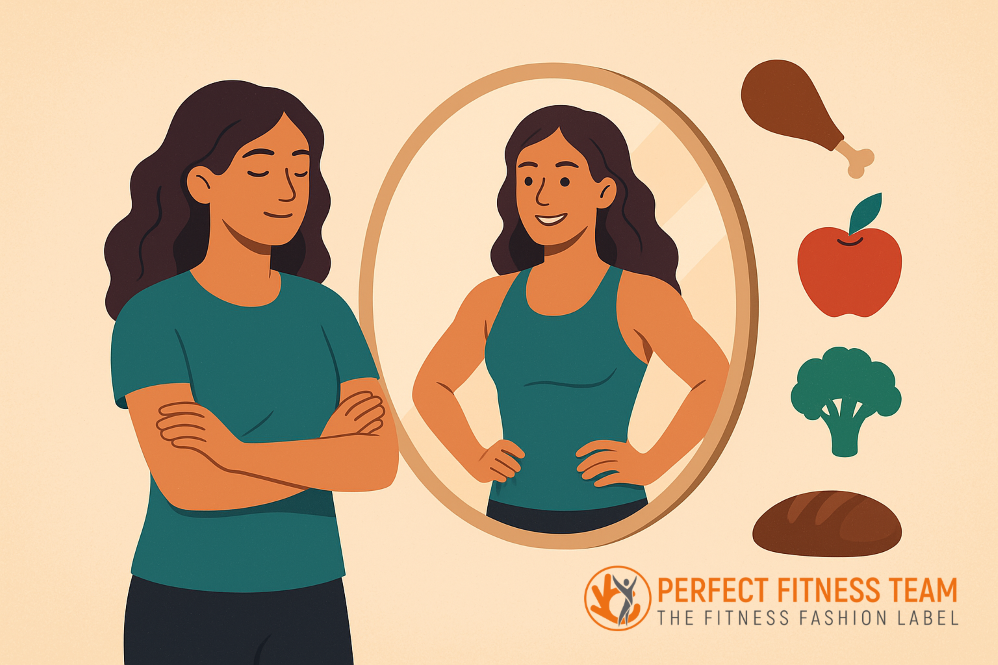


How Fitness Builds Identity, Resilience & Mental Strength
September 27, 2025


Beyond the Mirror: How Fitness Shapes Identity, Resilience & Mental Strength
October 11, 2025We often talk about fitness in terms of movement, exercise, and physical routines. But equally important—if not more so—is what we consume. Food is more than fuel; it’s a statement of our values, our respect for life, our environmental responsibility, and our self-discipline. When we eat ethically and intelligently, we nourish the body and the person within.
In this article, we’ll explore how to make food choices that align with health, ethics, and sustainability, and how such mindful eating complements your fitness journey.
1. The Case for Ethical Eating
a. Health & Sustainability: Co-benefits
Ethical food practices often have dual benefits for health and the planet. Research into “dietary eco-wellness” shows that eating with health and sustainability in mind can reduce the burden on the environment while improving personal well-being. PMC
Choosing plant-forward diets, local produce, and sustainable animal products helps reduce greenhouse gas emissions, land use, and ecological strain.
b. Ethical Food Consumption as a Movement
Over the past decades, research has mapped the evolution of ethical food consumption, showing increasing awareness of animal welfare, labor rights, environmental conservation, and food justice. PMC
Consumers increasingly ask: Where did this food come from? Who made it?
2. Principles of Intelligent & Ethical Eating
Here are key principles you can apply:
- Favor whole, minimally processed foods
Avoid ultra-processed foods high in additives, refined sugars, and artificial ingredients. Choose foods as close to their natural state as possible. - Eat more plants, less (or better) animal products
A plant-based diet reduces environmental impact and is linked to better health outcomes. Wikipedia
When consuming animal products, choose sustainably raised or ethically sourced ones. - Support local, seasonal produce
Locally grown and seasonal foods reduce transportation carbon footprint and often retain better freshness and nutrients. - Reduce food waste
Plan meals, use leftovers, compost, and avoid over-buying. Wasted food is wasted resources. - Be transparent and informed
Learn about certifications (organic, fair trade, sustainable fishing labels) and choose brands that share their supply chain practices. - Balance nutrition and ecology
Prioritize nutrient density, aiming for diets rich in legumes, whole grains, nuts, seeds, vegetables, and moderate amounts of ethically sourced proteins. - Practice intuitive and mindful eating
Listen to your body’s hunger and fullness cues rather than eating mindlessly. Intuitive eating supports a healthier, more balanced relationship with food. Wikipedia
3. How This Enhances Your Fitness & Character
- Strengthens discipline
Making intentional food choices takes effort, awareness, and consistency—qualities that build character. - Improves recovery and performance
You’ll fuel your body with high-quality nutrients, aiding recovery, reducing inflammation, and improving overall performance. - Fosters integrity
Aligning how you eat with your values (animal welfare, environment, fairness) builds internal integrity and coherence in your actions. - Encourages responsibility
When you understand the impact of your consumption on ecosystems, workers, animals, and communities, you become a more responsible global citizen.
4. Sample Ethical Plate for Fitness
- Half the plate: Colorful vegetables & greens (seasonal/local)
- Quarter: Whole grains or complex carbs (millet, oats, brown rice)
- Quarter: Protein (legumes, sustainable fish, pasture-raised eggs or poultry)
- Extras: Healthy fats (nuts, seeds, avocado) & herbs/spices
- Include fresh fruit for dessert or snack.

